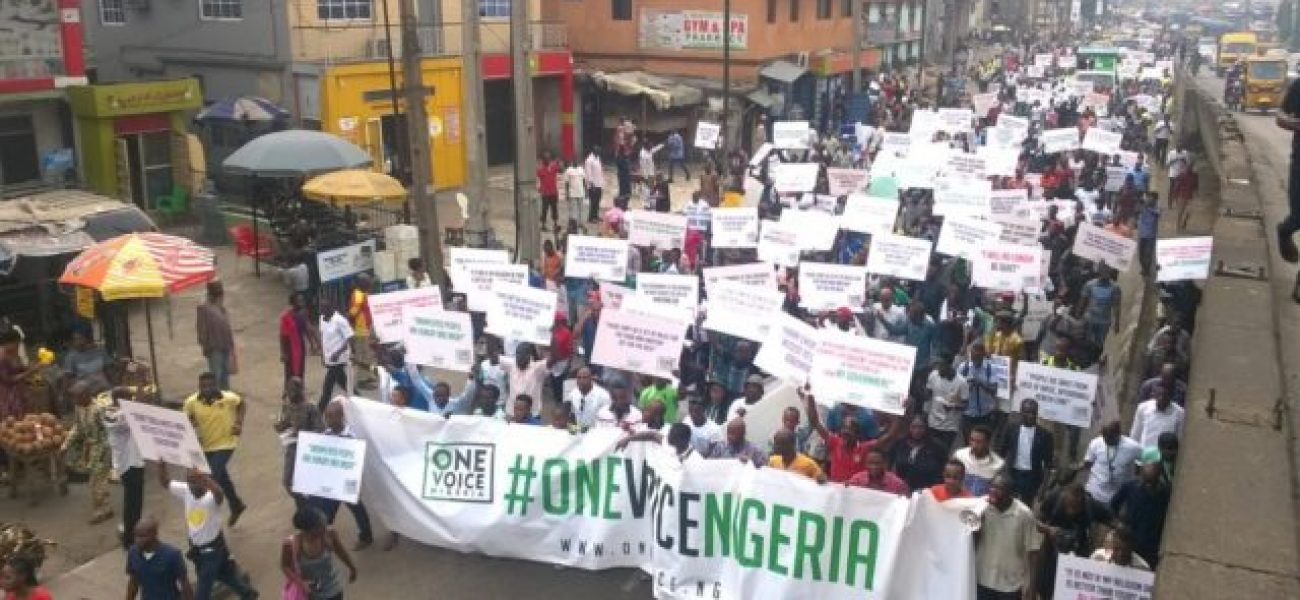A national protest to demand good governance and a better standard of living led by civil society groups, trade unions and human rights activists took place on the 8th of February in Lagos, Abuja, Port Harcourt, and other major cities. Using the Twitter hashtag “IStandwithNigeria”, the groups demanded better accountability and transparency of a government that promised Nigerians change when it was voted into power in 2015.
However, although the national demonstration is reminiscent of the “Occupy Nigeria” protest that took place in 2011 against plans by the Jonathan administration to remove fuel subsidy, the issues spurring the recent national protest appeared to be wider as it encompassed several issues that affect the average Nigerian’s ability to have a decent standard of living. The unemployment rate, cost of basic necessities such as bread, kerosene and rice have increased since the onset of the present administration leading to widespread poverty and hunger among citizens. The groups have also argued that the President Buhari’s government’s fight against corruption was losing credibility as a result of selective prosecution with some calling for the sack and prosecution of the Secretary to the Government of the Federation (SGF), Babachir Lawal over corruption after an interim report by the Senate Ad-hoc Committee on the Mounting Humanitarian Crisis in the North East alleged that the SGF had mismanaged funds allocated for IDP camps in the North East among others.
However, responding to these issues, the Vice President, Yemi Osinbanjo explained to Nigerians that their economic and social rights remain a priority of the government as seen in the half a trillion social intervention fund that includes the payment of N5,000 a month to the poorest citizens in the country, the home-grown feeding programme that has started in several States, and the provision of credit facilities to 1.6 million traders and artisans among others. A National Leader of the All Progressives Congress (APC), Chief Bola Tinubu came to the defence of the government saying that the damage caused in the last 16 years of the previous administration cannot be repaired “overnight” and as such that Nigerians would have to exercise patience.
The reports of an initial police warning to the organisers prior to the event taking place are also a stark reminder of Nigeria’s past military regime where state forces were used to prevent opposition. It is also ironical that the present administration appear to be using the same tactics of its predecessors who it accused of being high handed when it was the party in opposition. Sections 39 and 40 of the 1999 Constitution (as amended) explicitly guarantees the rights to freedom of expression and assembly and association respectively.
However, to bring out real change, a combination of factors which include political will, an informed citizenry, a responsive government are necessary. In the Arab spring protests which consisted of violent and non-violent protests in Tunisia, Egypt, Libya and Syria for instance, only the uprising in Tunisia has resulted in a transition to constitutional democratic governance till date. Therefore, beyond the protests there needs to be a continious and consistent engagement between citizens and elected representatives to bring about the change desired.

